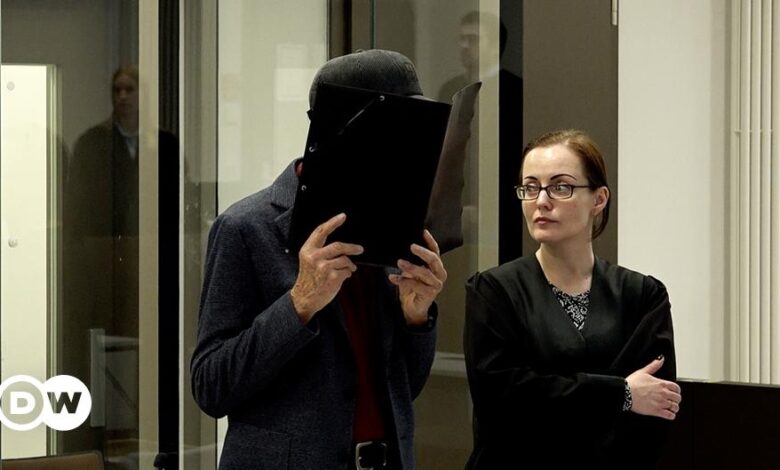Berlin: Prosecution seeks 12 years in Stasi murder trial – DW – 10/07/2024

A former employee of East Germany’s secret police, the Stasi, should receive a 12-year jail sentence for a murder he allegedly committed just over 50 years ago, prosecutors in Berlin argued on Monday.
What is the case about?
At issue is the March 29, 1974 killing of Polish man Czesław Kukuczka during the Cold War when the German capital was divided in two.
Kukuczka had threatened at the Polish Embassy in East Berlin to be carrying a bomb, which it later transpired was a bluff, and demanded safe passage across the Iron Curtain into West Berlin.
He was trying to flee to join relatives in the US.
Officials played along and pretended to acquiesce, providing the necessary documentation and permits, but also alerted the Stasi.
The prosecution alleges that the defendant, then aged 31, disguised himself and lay in wait for Kukuczka, shooting him in the back at point-blank range shortly before he would have crossed the border at the Friedrichstraße train station.
The trial only became possible with the emergence of new evidence. Prosecutors say information found by historians in the Stasi archives in 2016 first linked the defendant to the killing.
Later, new potential witness testimony — from schoolgirls who were on a day trip to East Berlin — on the details of Kukuczka’s death made a criminal case viable, even decades later. Charges were first pressed last year.
Prosecution says charges proven, defense disagrees
As the case reaches its closing phase, prosecutor Henrike Hillmann argued that the allegations against the suspect had been substantiated in court.
Defense attorney Andrea Liebscher, however, argued that the man has not been proven to be the killer, though the defense down not dispute that he worked for the Stasi at the time.
She also said the case should be treated as homicide but not as the German equivalent of first-degree murder in the US, and that as a result the statute of limitations for the killing would have expired.
The defense, therefore, called for an acquittal. The defendant himself did not speak to the charges during the trial.
Perceived nature of killing may be decisive for verdict
Only a conviction for a homicide described in German as “heimtückisch,” which might loosely translate as “insidious” or “malicious” or as “in cold blood,” would still carry a sentence in 2024 in this case.
Several past proven Stasi killings were only treated as the German equivalent of manslaughter, usually on the basis that the killers argued they were following orders rather than acting with malicious personal intent.
In this case, the prosecution says that factors such as the deception involved and the way Kukuczka was shot in the back qualifies for the more serious homicide conviction.
Hillmann argued that the defendant could have shot Kukuczka in the arm or leg and still have completed his order to neutralize the threat posed by the Pole.
She also argued that the defendant was consciously trying to further his career, pointing to Stasi documentation allegedly showing he was given a citation soon after the killing for actions attributed to the same date.
The defense countered that the victim could not have been wholly unsuspecting about the risks he faced when he was shot, given the bomb threat he had used to try to secure passage west.
By the current court schedule, a verdict is expected on October 14.
msh/wmr (AFP, dpa)



